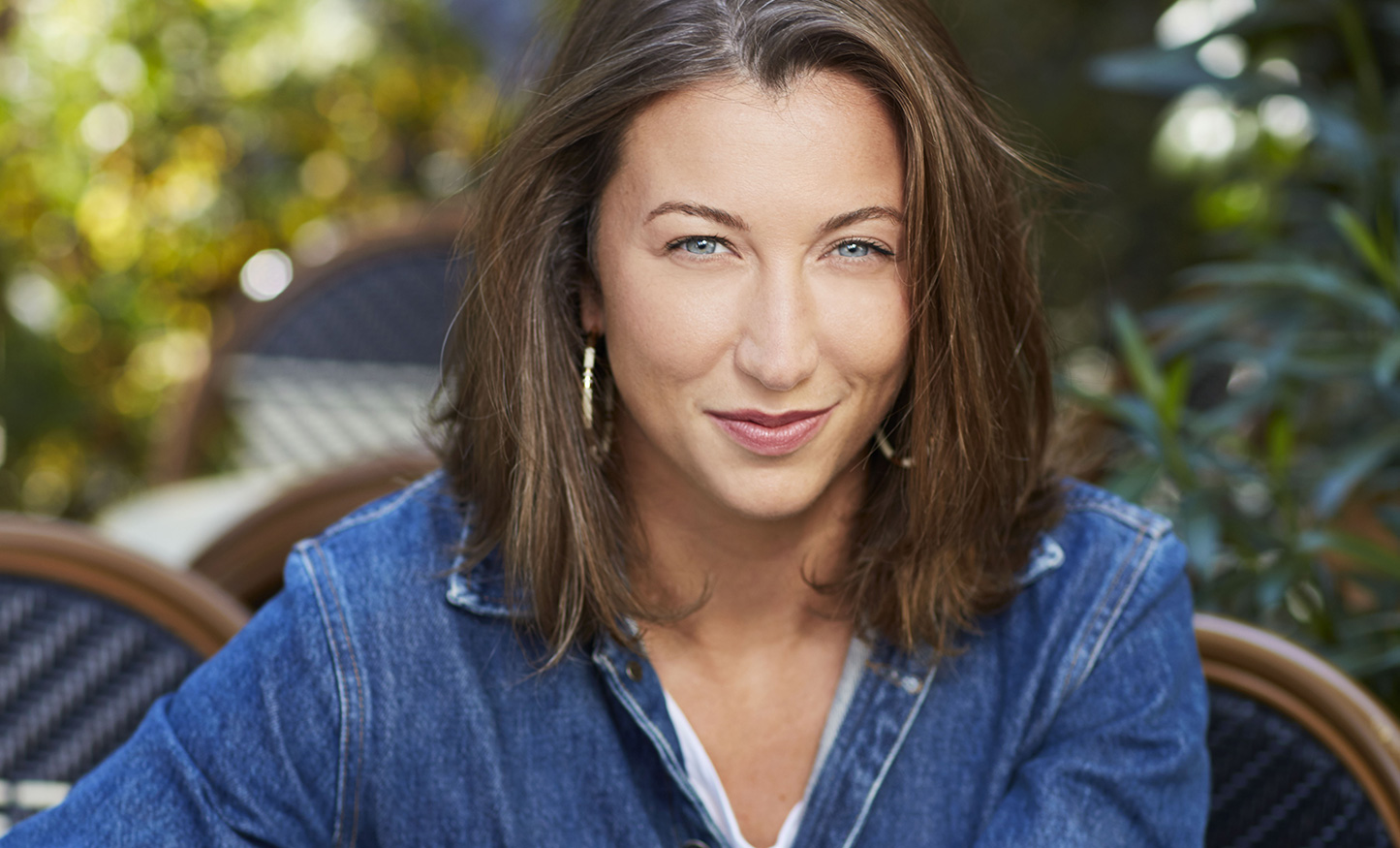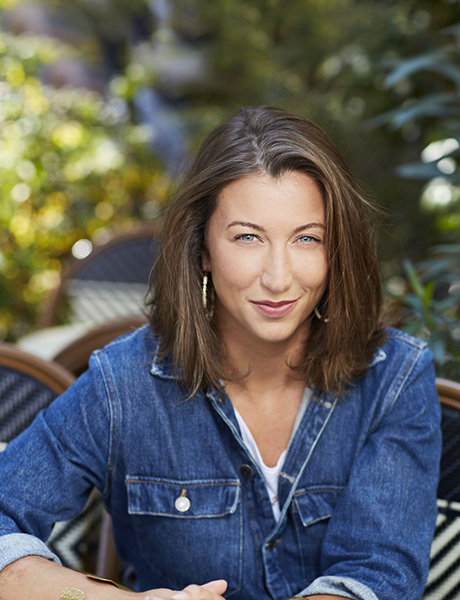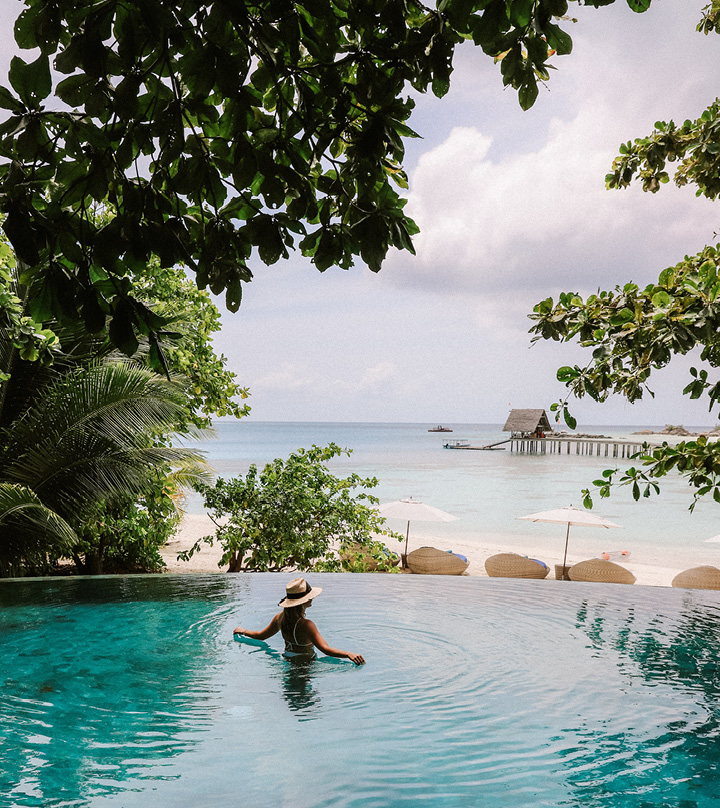



Marie Robert is a professor of literature and philosophy, author of books on applying a philosophical approach to everyday life, and creator of the podcast Philosophy is Sexy. She brings a curious eye and spirited take to the world around her, and in this wide-ranging interview with The Insider, she shares an enlightened and optimistic vision of luxury.
The Insider (TI): Philosophy and teaching are vocations. Tell us about your journey so far and how your vocation for philosophy first came about.
Marie Robert (MR): I feel like I was doing philosophy well before my final year at school. As a child, I questioned things a great deal; I was anxious, but curious. This might sound a little cliched, but when I got to my final year of literature studies at school, I thought “this is great, now I have space for all the questions I have been asking”. Very early on, I knew that I wanted not only to make it my study subject, but also to carry on taking my questioning further beyond that choice of academic direction. And while I was studying philosophy, the idea of teaching came very naturally. Philosophy is an exciting area of study, and right from the beginning I wanted to apply it to the lives we live.
TI: What is your vision of – and definition of – luxury?
MR: I think luxury is really the idea of exceptionality. Luxury is not about the same experiences, depending on who we are, because that notion of the exceptional differs from day to day. Luxury is actually a way of questioning our lives. That’s what I find beautiful, that it’s not only about the material. This is very clear in hospitality: luxury is not only about attention to detail, but also the attitude of the people around us who create an experience that is unique for us.
TI: How would you define the place of luxury in philosophy? Which philosopher is most closely linked to the notion?
MR: Luxury is a contemporary theme that has not been widely explored in philosophy. But I would say, though, that there is a bias; we talk about luxury from the point of view of a search for pleasure. This is illustrated in Greek philosophy, notably in a text by Plato, called The Philebus. It’s a discussion between Socrates and someone who is prepared to sacrifice a lot (memory, knowledge, thought, conscience) for a moment of pleasure. In philosophy, luxury is a part of the idea that ‘living is also sometimes about sacrificing everything for pleasure’.
In a continuation of that idea of the experience, we can bring luxury back to phenomenology and the author Maurice Merleau-Ponty. He explains that we are the world through which we feel, our body is the vehicle for that: we go through life with lots of experiences, phenomena, sensations… and I think that the idea of feeling is a part of luxury. Sometimes it’s difficult to explain why, but we arrive in a place and find it luxurious. At its foundation, luxury is not only an experience that’s different from our everyday lives, but, as Merleau-Ponty says, it’s also the experiences that makes us feel the most incredible sensations.
I think that’s what people learn in the most prestigious hospitality schools; how to implement incredibly high standards, attention to detail, a notion of preciousness and consideration for each moment in creating all sensations possible for the client. True luxury is different to ‘bling’ and ostentation, it’s details, smells, something very sensorial. What is luxurious, is that constant care and attention for the senses.

“This is very clear in hospitality: luxury is not only about attention to detail, but also the attitude of the people around us who create an experience that is unique for us.”
Marie Robert
TI: As a school director and professor, what do you think are the roles and challenges of education today?
MR: Education is the crux, the foundation of everything. It allows students to understand that they are actors in the world in which they live. It’s up to us as teachers, to give them confidence, encouragement, to empower them to feel bold and not to be afraid to take risks, so that they will start projects later on in life, that will undoubtedly contribute something to society.
So I believe in confidence, curiosity and knowledge. I think that the idea of passing things on is an exciting way to show the next generation how to live. Ancient knowledge mobilizes future knowledge. I love teaching Greek philosophy to explain that we are the heirs of all that and spark questions about what stone we are going to add to the building. Today more than ever, it’s important to remember that we are society, and that the vectors of change are in schools. Whether we’re three or 23, what are we going to bring about, collectively?
TI: What are your thoughts about the relationship between young people and luxury?
MR: Looking at my students, who are teens and young adults, I would say that they have a double relationship with luxury. On the one hand, it’s a fantasy around the idea of ‘bling’; they are caught up in images making luxury more ostentatious than ever because it can only be seen and not lived. On the other hand, I am impressed to see that, for many of them, luxury has become a political engagement and a way to show their identity. Luxury means freedom; to be who we want, to live how we like and smash the very hierarchical inherent codes of social class.
Today we are seeing a lot more boldness, and it’s less standardized. Luxury is becoming more of an identity, notably thanks to this young generation. I am impressed by their capacities for reflection. I often say to people who are having a hard time that they should spend the day with teenagers, because it gives an extraordinary boost of confidence and hope.
TI: Where might this lead us, ultimately?
MR: Something is really happening here; it’s as if this generation had digested all our problems. They are aware of the gravity of the situation for the world in which we live and have realized that they have no choice but to react. They are undoubtedly going to reinvent luxury while saving the planet. And you can see it especially in hospitality: new resorts and other projects which are often hybrid, more open to nature and a lot less polluting.
I truly believe that the luxury of tomorrow will be to finally learn how to be in sync and in harmony with the world around us. And luxury taken as care and attention, as experience and as high standards, is perhaps a magnificent school for becoming aware of all that.
- You can find Marie Robert’s podcast, Philosophy is Sexy, here (Apple) or here (Acast)
Photo credits:
Main image of Marie Robert – Pascal Ito ©Flammarion
Other photo by Chelsea Gates on Unsplash
Develop your luxury mindset
Our Master’s in Luxury Management and Guest Experience will position you perfectly for a career in the luxury sector.

















